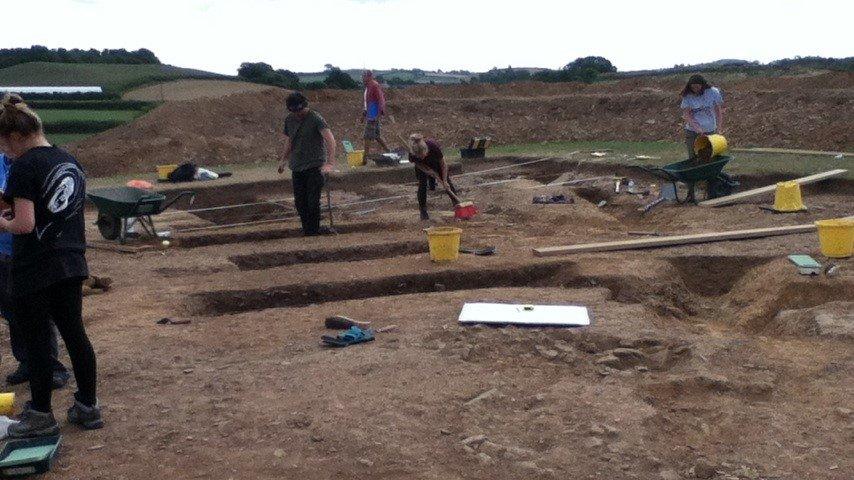Roman oil and wine pottery found at Ipplepen dig site
- Published
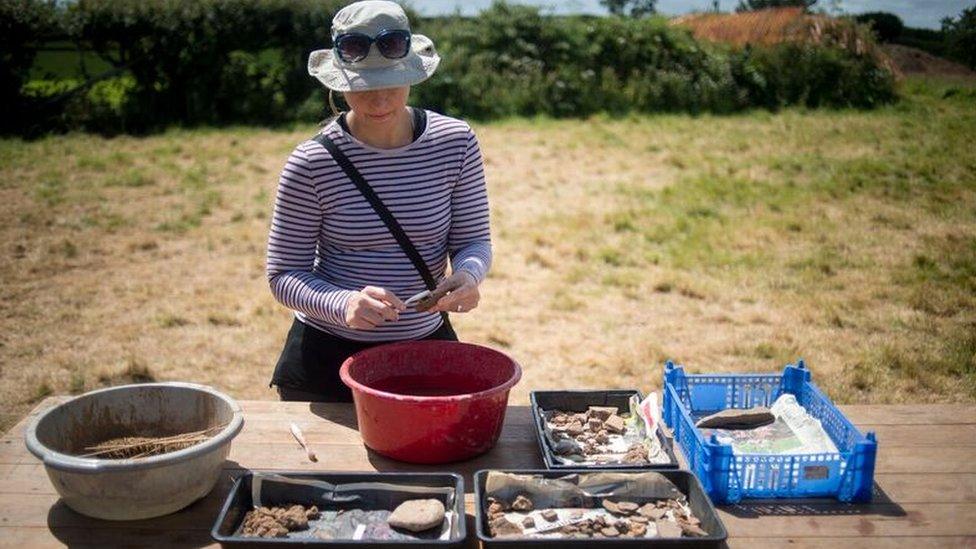
Archaeologists washing evidence of the iron works and pottery
Archaeologists say pre-Roman Britons who lived in a rural location since the 4th Century BC may have enjoyed Mediterranean oil and wine.
Radiocarbon analysis of a dig site showed there was a settlement at Ipplepen, Devon, for about 1200 years longer than previously thought.
The discovery of Roman pottery suggests there was a community trading widely with the Roman world.
University of Exeter archaeologists are digging at the site this month.
Archaeologists said the samples were Roman amphora used to transport wine and olive oil.
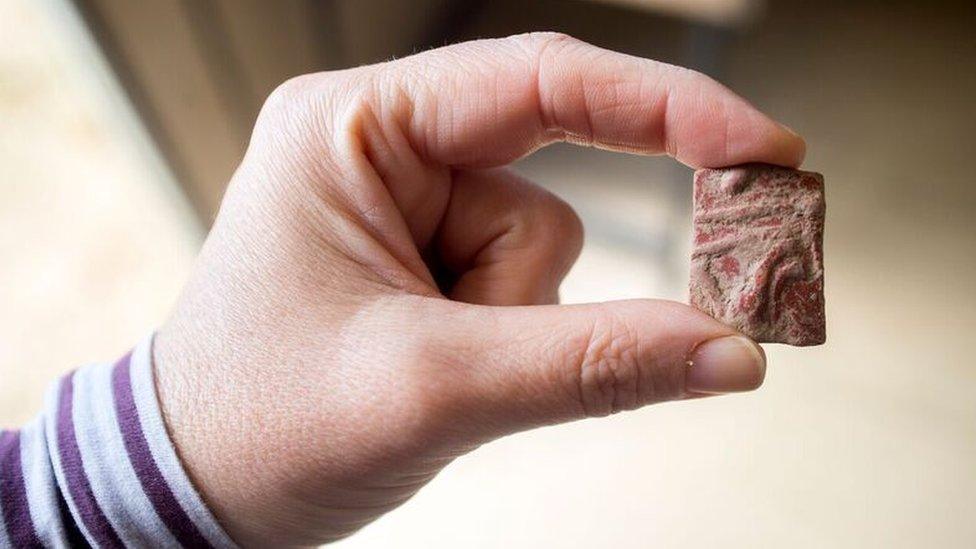
Previously unseen fragments of Roman pottery were discovered at the south Devon site
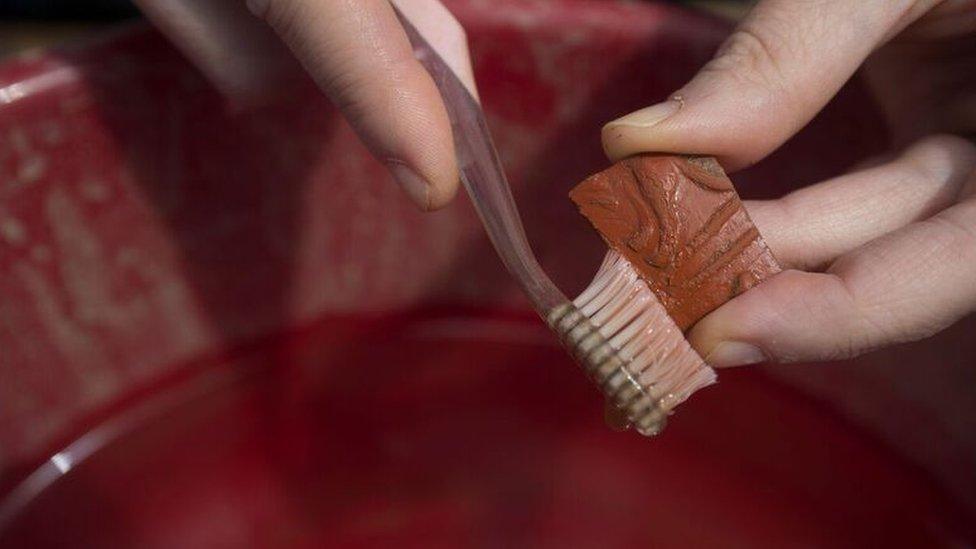
Archaeologists said the samples were Roman amphora used to transport wine and olive oil
Professor Stephen Rippon, of the University of Exeter, said: "When we started excavating we thought that the site was only used during the Roman period, but the appliance of science has shown that it was occupied for well over a thousand years.
"Our excavations have given us further insight into how people made a living too."

Uncovering Ipplepen's past
2009: Roman coins are first discovered at Ipplepen, near Newton Abbot
2011: Trial excavations begin
2012: A Roman road, a square enclosure ditch of Roman date, and an Iron Age/Romano-British round house are discovered
February 2015: A Roman cemetery is been discovered, revealing 15 skeletons
June 2016: The boundaries of the Roman Empire are redrawn after it is discovered the settlement had trade links to the rest of the Empire

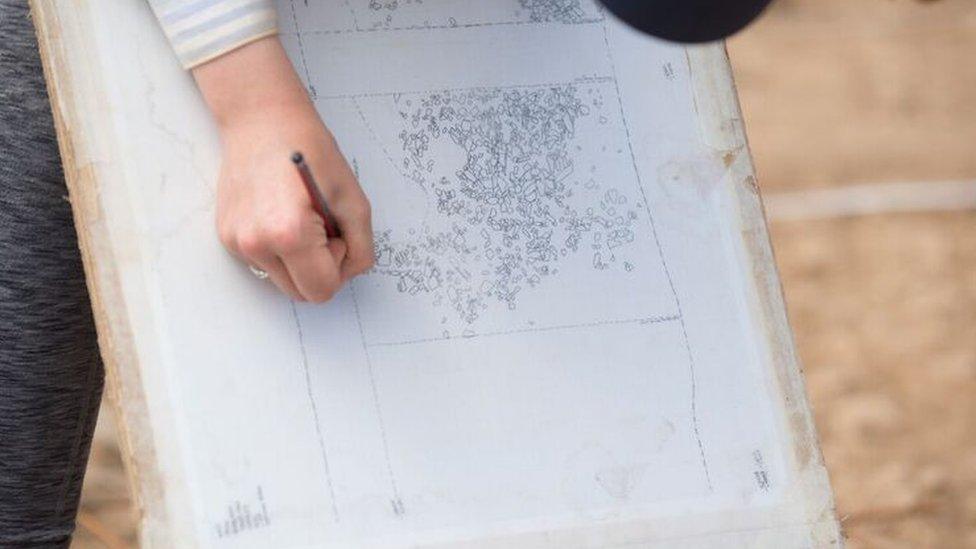
Bones from a cremation on the site identified it as older than previously estimated
The archaeologists speculated the settlement may have been a farming community after the remains of a granary were found.
There is also evidence of industry at the site, after debris from iron working was found near what is thought to be the edge of the settlement.
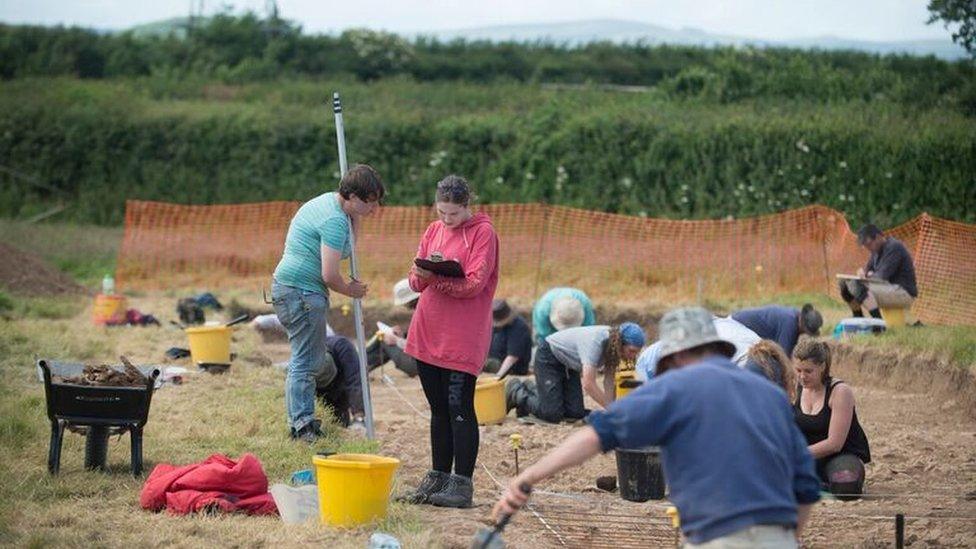
The site was thought to be abandoned in the 8th Century AD
Dr Chris Smart, of the University of Exeter, said: "We are so excited to be able to show everyone the hidden past of Ipplepen.
"The generosity of the Heritage Lottery Fund will enable us to help the community to record some of the most important archaeological and historic sites within the region and this will be of huge benefit to future generations."
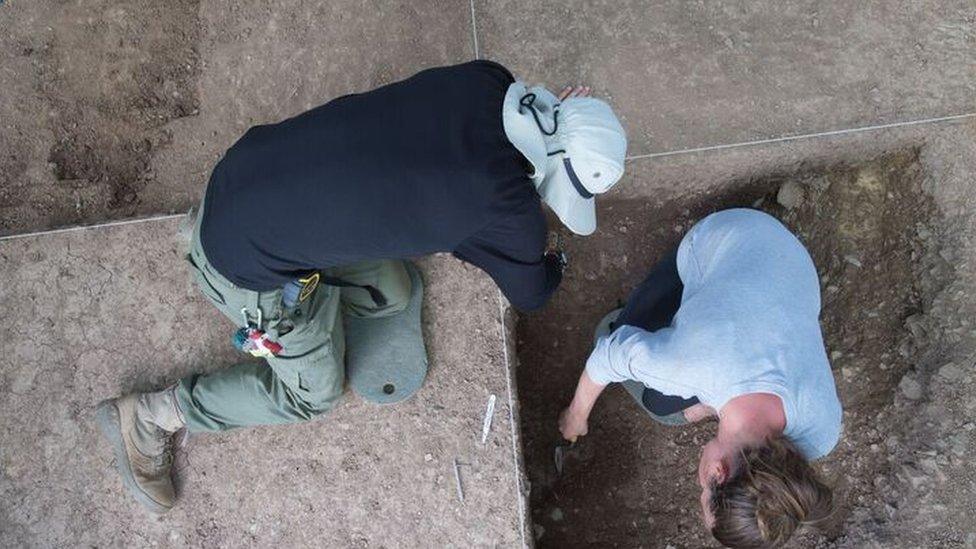
Ten members of the local community are helping to excavate the area this month
- Published9 February 2015
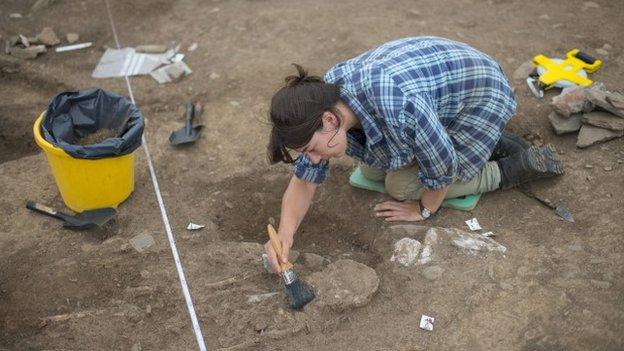
- Published22 June 2016
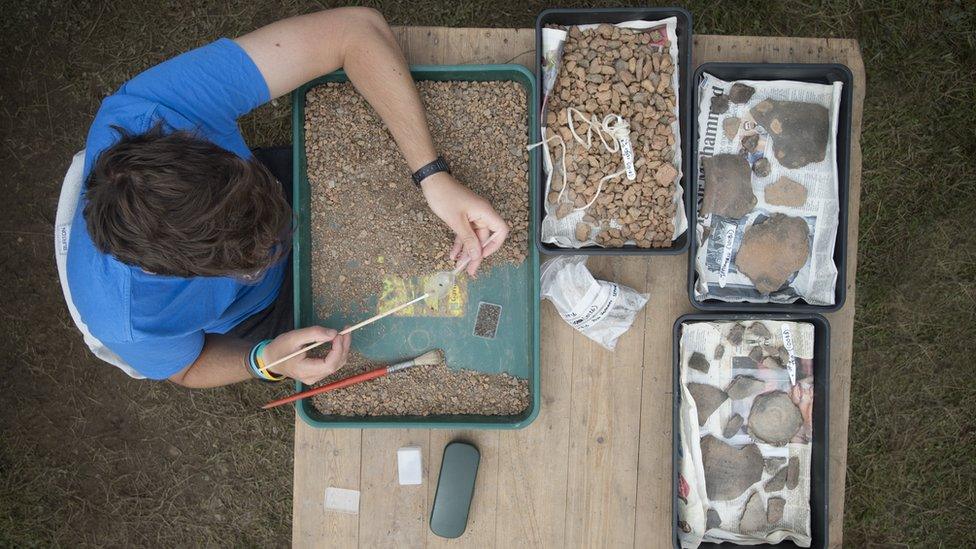
- Published17 August 2013
